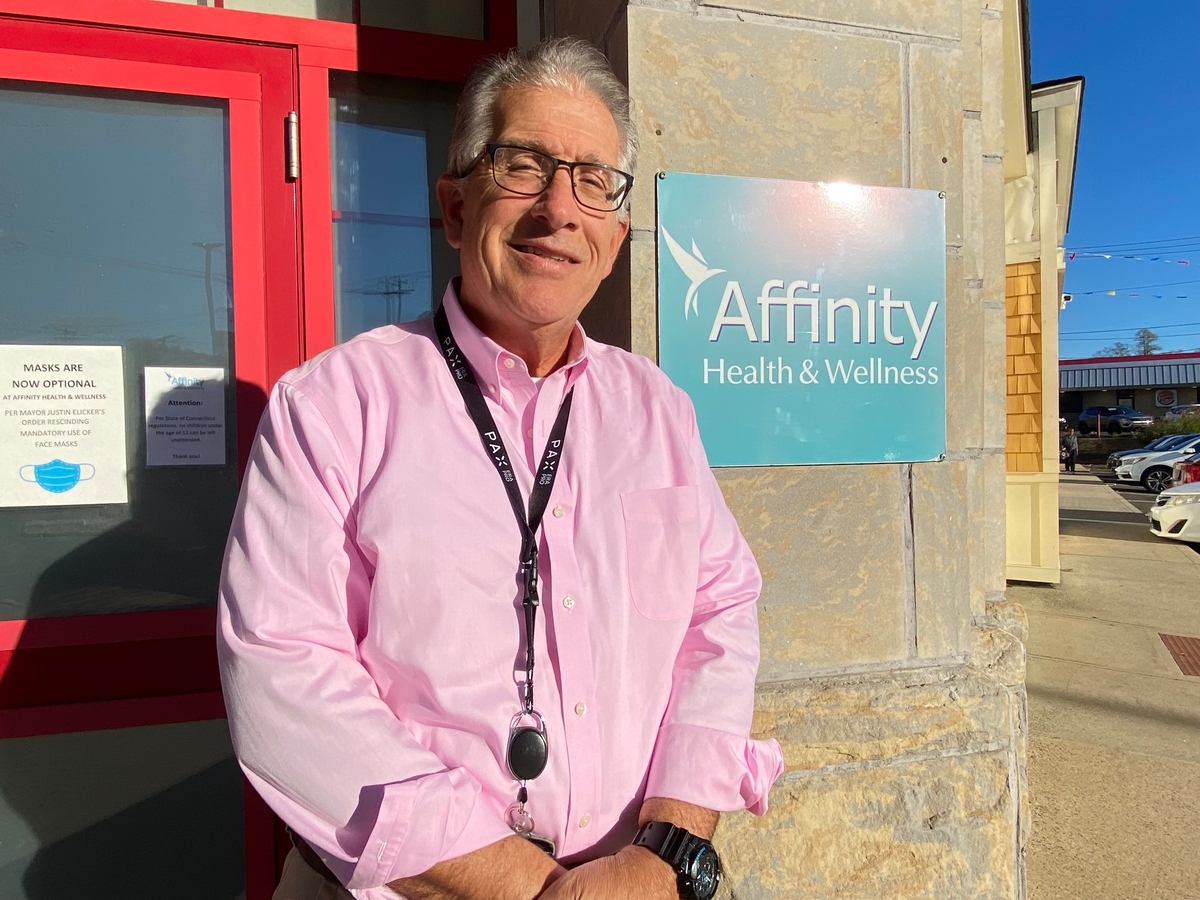
Nora Grace-Flood photo
Ray Pantalena: On track for recreational sales, thanks to Wednesday City Plan Commission vote.
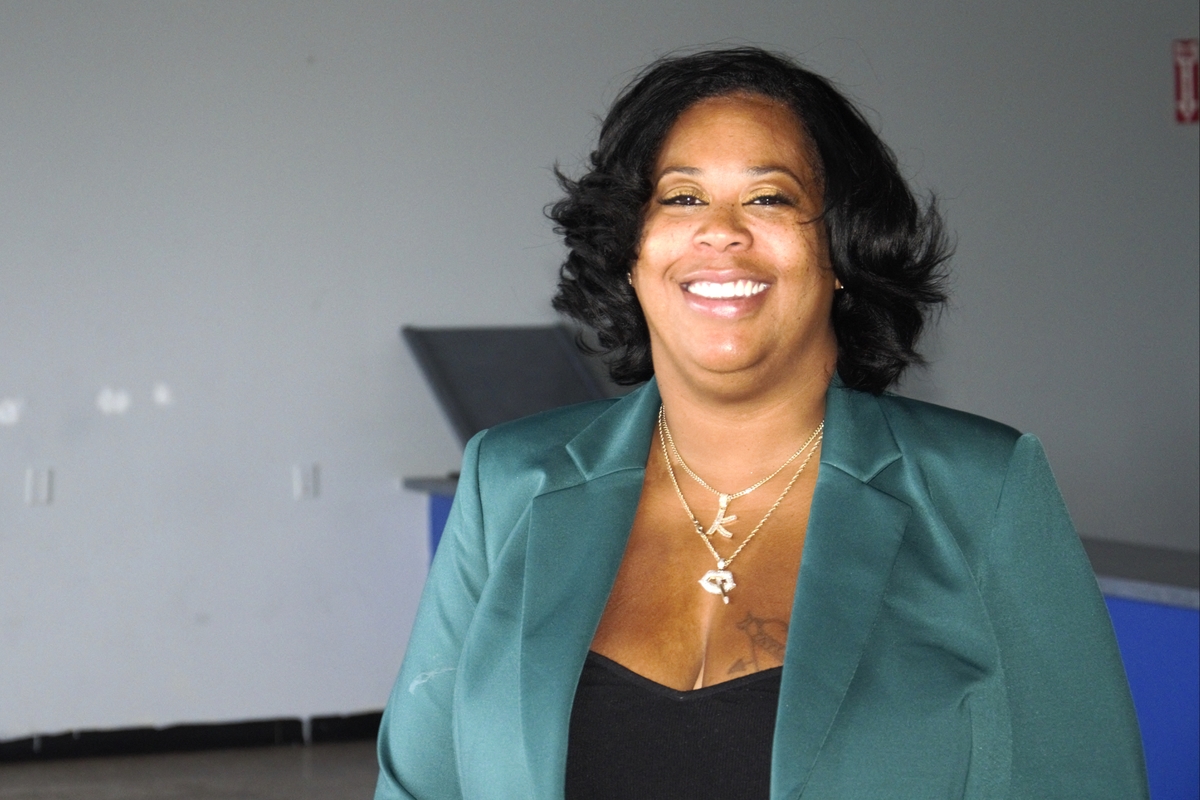
Jordan Ashby Photo
Kebra Smith-Bolden: On track for cultivator license, thanks to Tuesday Social Equity Council vote.
A medical marijuana pharmacist is set to roll recreational bud and edibles onto Whalley Avenue as soon as December — after getting approved for the city’s first ever adult-use cannabis business special permit.
And another leading local cannabis entrepreneur has won a key vote of support from a state council to build out her own “social equity” cultivation and retail ventures.
That first approval went to Ray Pantalena Wednesday night during the latest regular monthly meeting of the City Plan Commission, which was held online via Zoom.
The local land-use commissioners voted three to one to permit Ray Pantalena, who has operated a medical marijuana dispensary at 1351 Whalley Ave. known as “Affinity Health & Wellness” since 2019, to take on adult-use cannabis sales inside that same shop. City Plan Commission Chair Leslie Radcliffe was the sole commissioner to vote against the special permit out of a concern that the retailer may have a detrimental impact on the surrounding neighborhood.
The commissioners’ approval of Pantalena’s special permit followed a lengthy debate during which commissioners raised questions about how to make space for legal cannabis in a community where little precedent is available to guide planning decisions.
The vote took place a year after the state legislature legalized adult-use recreational cannabis in Connecticut, in the midst of the state’s processing of applications by a host of businesses to grow and distribute and sell marijuana, and three months after the Board of Alders voted to adopt new citywide zoning regulations that allow cannabis dispensaries to legally set up up shop in certain business and industrial districts around town under certain conditions.
Pantalena’s approval also came the same week that another local weed-preneur, Kebra Smith-Bolden, got a big boost of support from a state body that had previously stood in the way of her canna-business dreams. (See below for more.)
What If Kids Smoke In The Park?
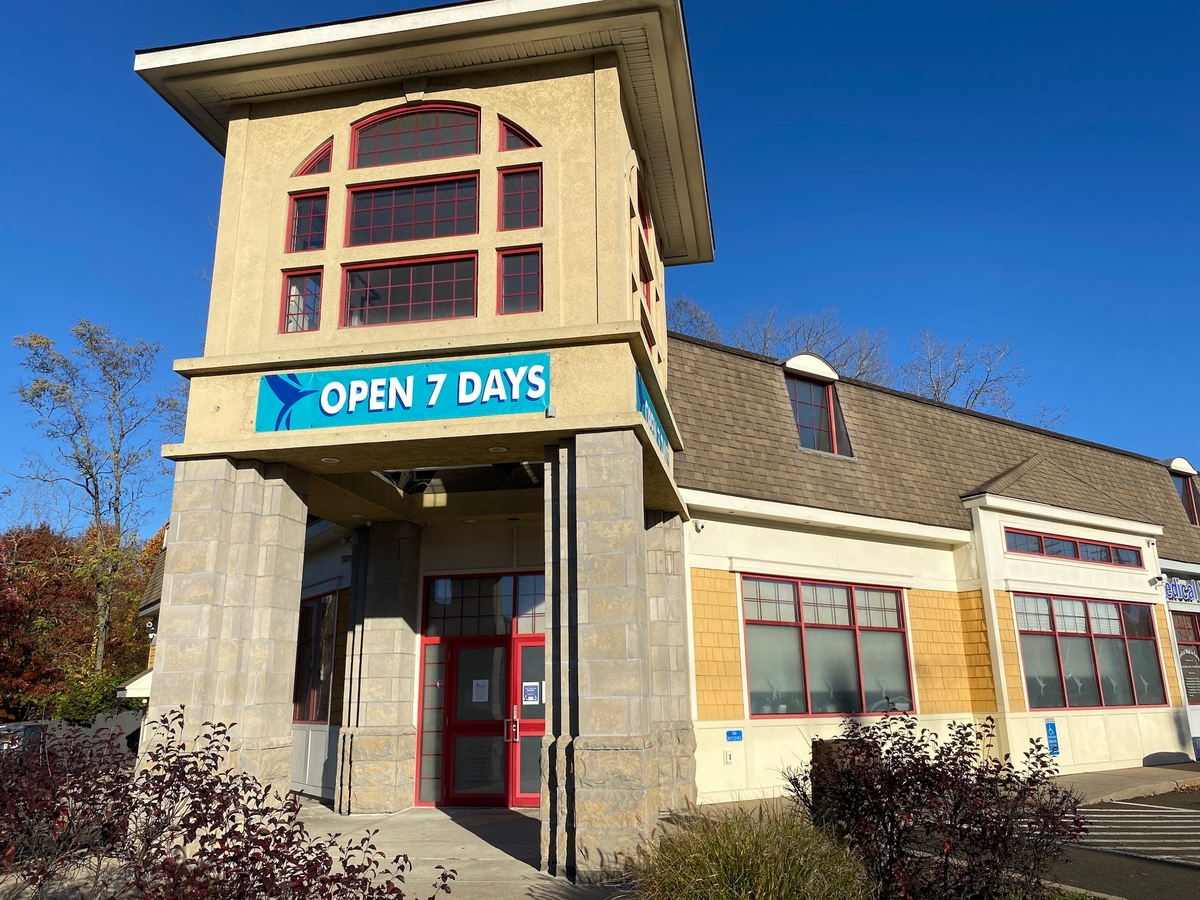
Affinity Health & Wellness.
“We are trailblazers in a way,” Westville Alder and City Plan Commissioner Adam Marchand said during Wednesday’s meeting. “This application is the first we’ve seen since we passed our ordinance,” he noted, referring to recently adopted local zoning law governing cannabis.
That ordinance includes some hard rules like demanding minimum distances between dispensaries and schools while also featuring softer guidelines such as criteria the City Plan Commission should consider before handing out special permits.
The ordinance asks the commission to examine the proposed dispensary’s proximity to “sensitive receptors,” or areas that may be impacted adversely by the presence of adult-use marijuana such as parks, playgrounds and community gardens.
That paragraph on “special receptors” was a hot topic Wednesday night as commissioners debated whether the Whalley Avenue dispensary’s location was appropriate and questioned whether its immediate adjacency to a basketball court popular with teens as well as its nearness to the West River Trail and Pond Lily Nature Preserve would prove problematic.
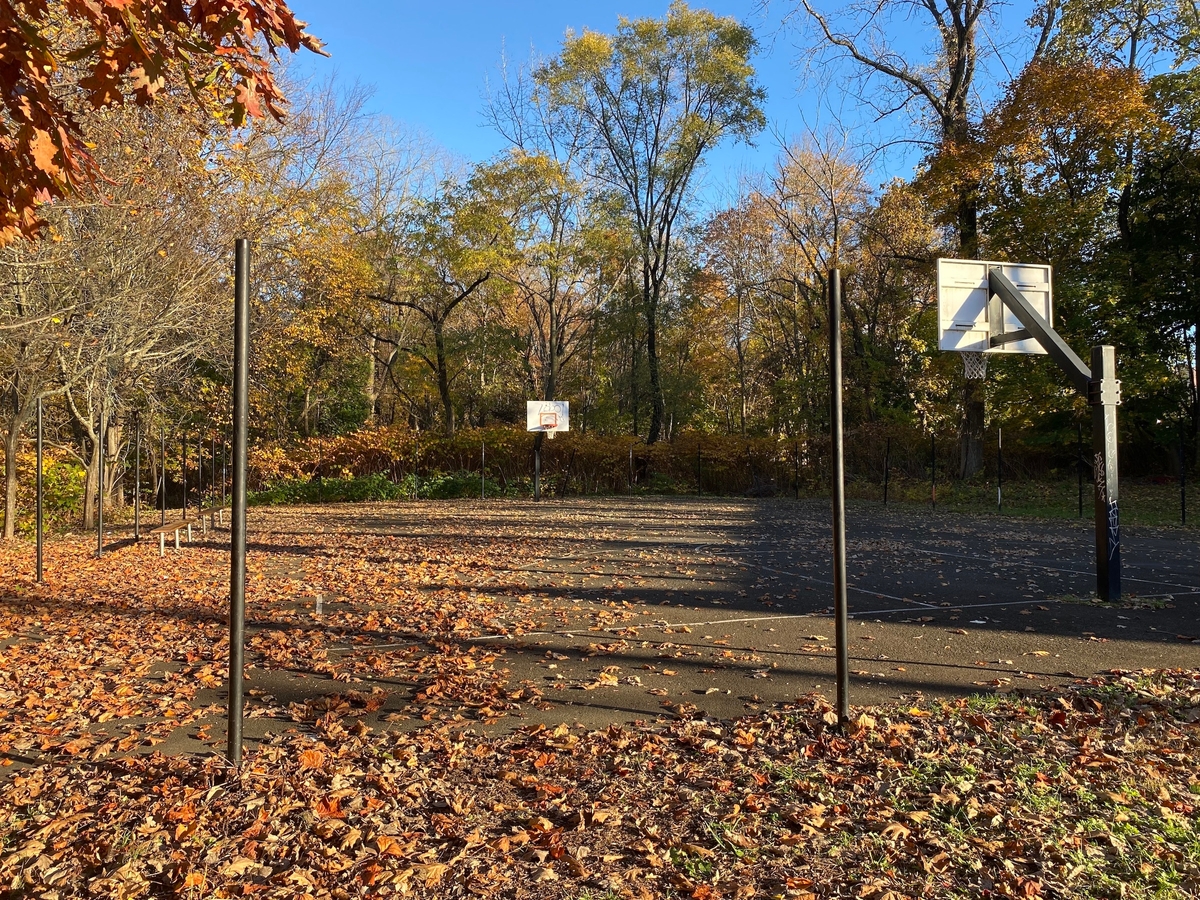
The basketball court right next to the West River Trail — AKA Affinity Health & Wellness' backyard.
During the public hearing portion of the meeting, Amity/Beaver Hills/Westville Alder Richard Furlow expressed concern that consumers of cannabis would indeed purchase their marijuana merchandise and head straight towards the neighboring youth-populated parks.
He also worried about traffic problems posed by the introduction of one of the state’s first dispensaries to Whalley Avenue, suggesting that a possible increase in vehicles surrounding the shop would not only cause street congestion but contribute further to disruption of the nearby natural environment.
Nobody else from the public besides Furlow spoke up in favor or against the project.
City Plan Department Director Laura Brown also spoke up on behalf of the city during Wednesday’s meeting: “We don’t have a lot of precedent to go on,” she said. “It’s not clear if proximity to the park will necessarily impact use,” she added. “We just don’t have additional data to justify a denial necessarily.”
Attorney Bernard Pellegrino, who represented Pantalena Wednesday night, noted that a traffic flow study predicted that the new dispensary use would have “no significant impact” on traffic.
“Obviously we hope there will be more visitors to the site,” he conceded. But because the dispensary would be open seven days a week from 9 a.m. to 8 p.m., Pellegrino said customer visits would be “spread out over time” and “traffic flow should be good.”
Plus, Pantalena said, he has a plan to lease 10 staff parking spaces at a nearby Walgreens to ensure car space for employees and customers.
Rather than hanging around the dispensary, Pantalena said that 90 percent of his customers pre-order and check out on site in less than five minutes. He said he would encourage pre-orders while transitioning into recreational use as well.
Customers “just make their purchases and they leave, they go,” he said. And as for the park, “in the three and a half years that we’ve been there, nobody goes there, nobody congregates there. It’s really a non-issue.”
He argued that the park is “not the most inviting… it’s been neglected and we’ve had to call a few times to have debris picked up that was strewn there.”
As for the potential proximity of youth, Pantalena reminded the audience that the dispensary is required to bag customers’ items in unmarked “little lunch bags” to avoid actively advertising his products. He promised to continue prioritizing discretion at the store.

Layout of the proposed dispensary.
He said there are 40 security cameras tracking the area surrounding the store and that the two closed vestibules customers pass through for screening and carding prior to entering the dispensary could be used to educate customers about where they can or cannot openly consume cannabis.
Commission Chair Leslie Radcliffe pushed back on Pellegrino’s and Pantalena’s arguments.
“To say there will be no significant impact,” she said of the traffic study, “to me that’s really a vague term… Impact is in the eyes of those who are impacted.”
“Traffic studies aren’t necessarily done by those who live there or play there. It concerns me that one of the exits [from the dispensary] that may receive additional traffic is in close proximity to a park area… I know where that basketball court is and it’s utilized all the time.”
“You run a very professional medical establishment,” Radcliffe told Pantalena. She said the “absence of complaints from anyone in the public” was a testament to the medical dispensary’s care and caution.
“My concern is what happens after the product leaves your facility and you don’t have that much control over what happens when you leave.”
“There’s too many opportunities for detrimental impact,” she concluded.
However, the three remaining commissioners, Adam Marchand, Carl Goldfield, and Joshua Van Hoesen ultimately voted in favor of granting Pantalena a special permit.
“I’m on the fence on this one, but I’m leaning in the direction that the risk of harm is not as great as I fear it could be,” Marchand said, adding that he was “wrestling” with the decision from the standpoint of a “member of society, an elected official, and a parent to young children.”
“I have been a recreational user in my past,” Van Hoesen chimed in. Speaking from experience, he said, “if you wanna smoke in a park you’re gonna smoke in a park… it’s just the manner of the beast.”
Goldfield agreed that policing of cannabis use was outside of the retailer’s hands, but contended that dispensaries distribute “almost a bespoke product,” asserting that those who follow legal paths to purchase cannabis at more expensive rates than illegal dealers sell would more likely abide by city and state rules concerning consumption.
“Yes there are risks,” Carl Goldfield added. “And I just can’t think of a better candidate to go with than an applicant like this… go with someone who’s already there, or halfway there.”
"Looks Great In Here, Ray!"
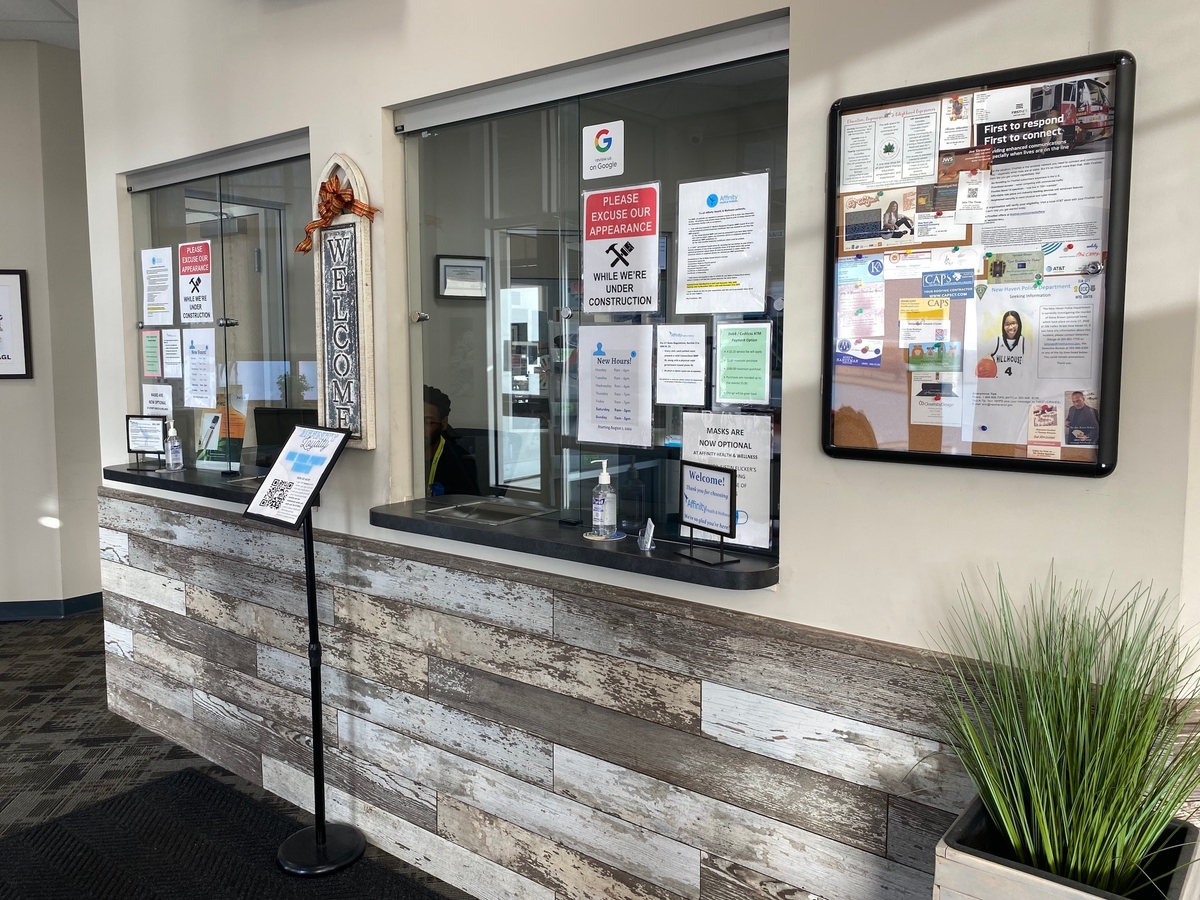
The main two medical card-checking stations...
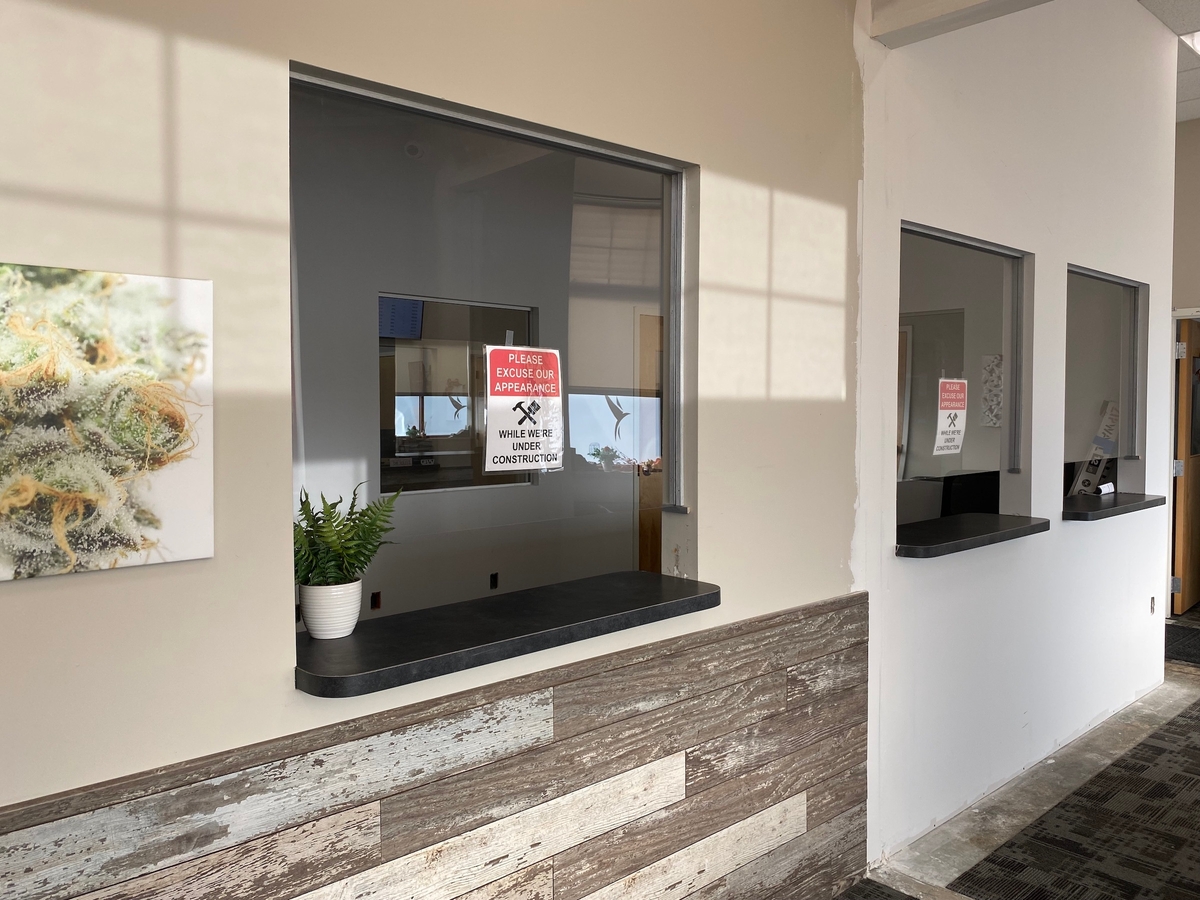
Alongside some under construction retail windows at 1351 Whalley Ave.
“We’re very excited to be the first hybrid dispensary in New Haven,” Pantalena told the Independent in a Thursday tour on Whalley Avenue. “New Haven has been very thoughtful in thinking through the process of cannabis sales.”
“We’re ready to go,” Pantaleta said, as soon as the state gives the go ahead.
The state meanwhile, is reportedly on track to distribute retail licenses by the end of 2022 or beginning of 2023, according to Kaitlyn Krasselt, the communications director for the Connecticut Department of Consumer Protection.
Krasselt explained that before the adult-use market can open, the law requires there is at least 250,000 square feet of grow and manufacture space dedicated to cannabis cultivation. That is the minimum amount of growth required by the state to make sure that dispensaries won’t run out of product for medical patients while selling to recreational customers.
The state also needs to make sure there’s a substantial number of retailers ready to open stores once the minimum amount of cannabis is en route. “We obviously don’t want to open just one store where it’s disruptive to the community, they’ve got lines out the doors, they sell out in an hour,” Krasselt reasoned. But, she added, “we have a number of retailers we expect to be ready to open” in the coming months.
Krasselt said that there are 18 existing medical dispensaries across the state and all were given an opportunity to convert to hybrid businesses to serve both the medical and recreational markets. Current operators of medical marijuana facilities had the option to pay $1 million for a standard hybrid license or half of that by entering a social equity partnership as financial backers.
Those applying for hybrid licenses, like Pantalena, were required to submit medical preservation plans, among other documents to the state, to guarantee effective, continued service for patients.
“It’s really important to us that patients continue to have access to medicine,” Krasselt said. “That’s the first priority.”
Pantalena, a Madison resident who has worked as a pharmacist for 40 years, applied for a hybrid license with the state back in February, meaning he will continue to distribute medical as well as recreational cannabis once he gets his license.
Pantalena said he purchased his Whalley Avenue building back in 2019, after working at several other pharmacies across New Haven, partly because it had enough space to eventually be converted into legal recreational retail.
He became interested in marijuana years back as a legitimate medicine after observing patients hooked on pain meds and opioids gradually “using less and less and less” as a result of movement towards cannabis cures. Marijuana “was not just supplementing what they were doing,” Pantalena said, “it was replacing what they were doing.”
Pantalena has opted to pursue an “equity joint venture” meaning he will partner with individuals who had an average household income of less than three times the state median household income over the last three years and were residents of a “disproportionately impacted area” for either at least five of the past 10 years or at least nine years before the age of 18. Disproportionately impacted areas refer to neighborhoods across New Haven and Connecticut that a state selected Social Equity Council has determined to be disproportionately harmed by cannabis prohibition.
Pantalena said he is in conversations with six individuals meeting the above requirements who could potentially share ownership of his new hybrid cannabis retail business.
He’s already renovated the interior of the dispensary to accommodate new retail while catering to his medical clients.
After buzzing in through a locked vestibule, individuals now enter a waiting room that has five windows instead of the original two. Those with a medical card check in at the first two windows; those with valid identification will, soon enough, verify their age at another set of three separate windows. Inside the dispensary, individuals will remain segregated on that basis at check-out — because those with medical cards will maintain access to cannabis menus with higher strength products.
On Thursday, medical customers noticed the changes — including new lounge chairs — as they streamed through the doors. “Looks great in here, Ray!” they congratulated Pantalena.
Smith-Bolden's Social Equity Application Advances

Kebra Smith-Bolden.
In other local canna-news, Kebra Smith-Bolden, a native New Havener who runs the medical cannabis certification company CannaHealth, also got a boost for her bid to open up new cultivator and dispensary businesses of her own.
That’s because the state’s Social Equity Council (SEC), which is charged with ensuring that communities disproportionately harmed by the War on Drugs benefit from adult-use cannabis legalization, voted to accept the consultant CohnReznick’s recommendation that Smith-Bolden’s application — as well as applications submitted by 10 other aspiring cannabis businesses — meet the ownership and control criteria to be deemed social equity applicants.
Which means that Smith-Bolden’s company can now advance to the state Department of Consumer Protection to seek a provisional license to run her own cannabis cultivation business as a social equity applicant.
Smith-Bolden has long had her eyes set on starting up her own cannabis cultivator and retail businesses, and has partnered with a Canadian-based cannabis operations company called Acreage Holdings, Inc. to raise the capital necessary to get into the newly legalized adult-use marijuana market.
She ran into a major business roadblock this summer when the SEC rejected her and Acreage’s cannabis cultivator license application on the grounds that Smith-Bolden did not “control” at least 65 percent of the joint venture.
After taking the SEC to state court in the form of an appeal of that decision, Smith-Bolden and several other aspiring cannabis business owners from across Connecticut convinced the SEC to reconsider their applications and give them another shot to clarify the structures of their respective businesses.
The SEC did just that. In late September, it remanded 11 applications — including Smith-Bolden’s — and gave those businesses two weeks to resubmit their documents to prove that the social equity applicants truly control 65 percent of their respective businesses.
“We resubmitted our documents,” Smith-Bolden told the Independent in a Thursday interview. CohnReznick, the consultant hired by the SEC to review these applications, took another look and confirmed that Smith-Bolden’s company does indeed meet the ownership and control criteria.
And then on Tuesday, the SEC voted to accept CohnReznick’s recommendation, for Smith-Bolden’s company and for the other 10 companies whose applications had previously been turned down.
Smith-Bolden explained on Thursday that this approval means that she can now apply for a provisional license to start up her own cannabis cultivation business. (She said she’s already received the go-ahead to apply for a provisional license for a separate cannabis retail business, as well.)
Smith-Bolden said the delays caused by the SEC’s initial rejection of her company’s cannabis cultivator social equity application have had a real cost for her aspiring business.
“We had a property set aside that we were in negotiations to purchase,” she said. “Because of that denial, we lost that property. So now we’re back to square one.” She said she’s currently looking for a new property to buy where she can set up her aspiring cannabis growing businesses. “That is extremely difficult” because of the need for a large amount of space, tall ceilings, floors that can hold quite a bit of weight, “substantial power,” and “a good flow of water.”
“Of course, my desire is to be in New Haven,” Smith-Bolden said about her aspiring cannabis cultivation businesses. “I’m from New Haven. I love my town. And, most importantly, I’ve witnesses with my eyes and with my heart the damage that the War on Drugs did to my New Haven community, to Newhallville, to the Hill.”
But, she said, if she’s not able to find an adequate property for her cultivation business within city limits, she may have to look outside of the city to other so-called “disproportionately impacted areas,” or DIAs.
She said she would also like to open her aspiring cannabis retail business, or dispensary, within New Haven city limits, if possible.
“I am working on creating an experience for my retail customers,” she said. “They’re going to feel VIP from the moment they walk in the door. People will have the opportunity to really learn about cannabis, about the science of it, how the plant works. It will really be an experience that will be enjoyable for you whether you are a new consumer or an experienced consumer.”







The Whalley Avenue renaissance continues: the outpatient clinic coming to the old CVS site on Whalley and Orchard, and now this.